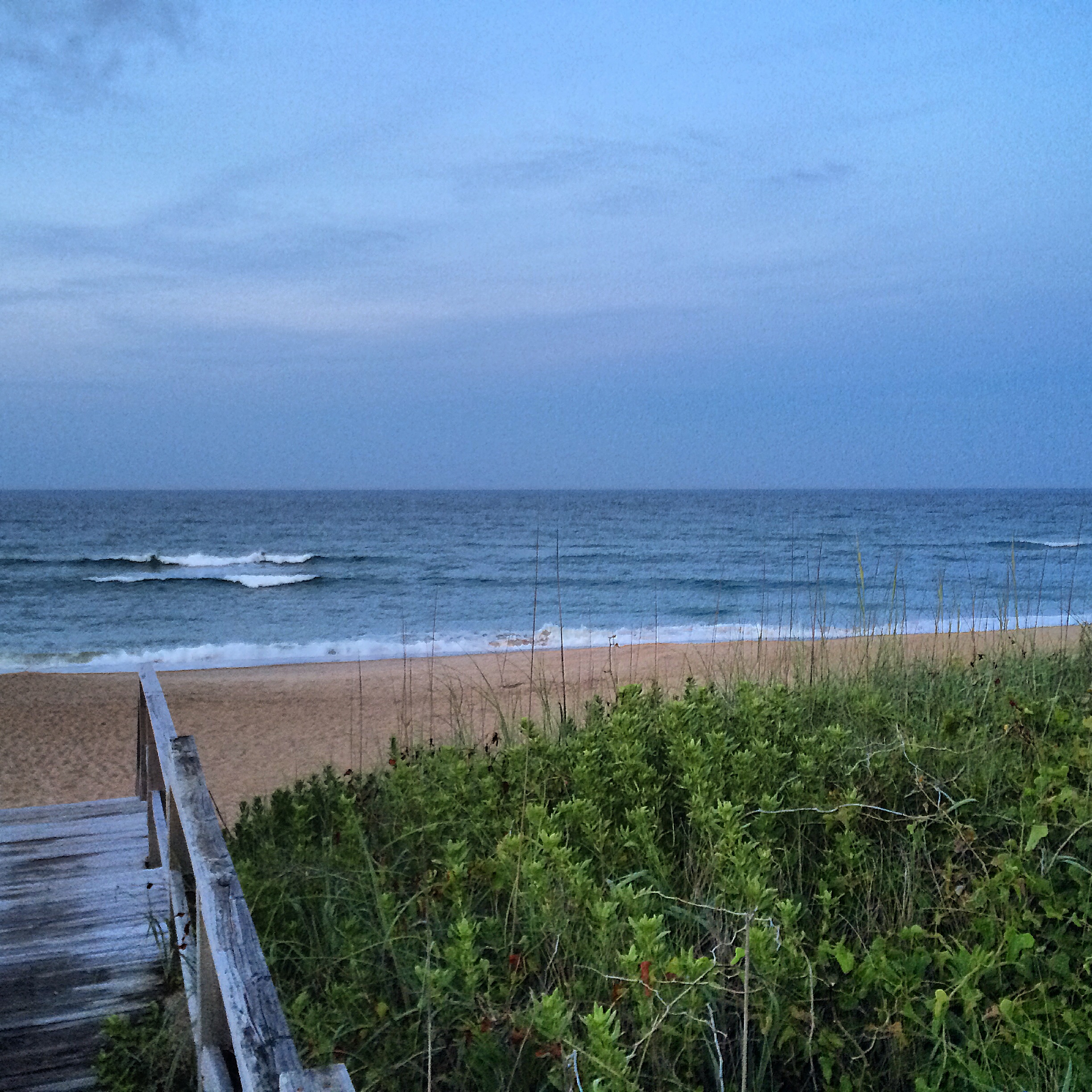
Upstream from the work of scholarly publishers, it’s the middle of the deceptively paced academic summer when scholars I know are often focused on conferences, research trips, and writing. Summer isn’t as frantic as the academic year, when every other email from August to June begins with “I know it’s a busy time of year.” But it’s still plenty busy. With the intensity of the teaching year and the expectations for publication pre- and post-tenure, summers are precious time for research and writing. Journal editors can chart the uptick in submissions in mid-to late summer.
And yet teaching really doesn’t stop for the summer — not for faculty who teach summer classes, and definitely not for graduate advising. My history department at the College of William & Mary has a charmingly worded section in the graduate regulations noting that faculty “are not available” to read and comment on graduate work during the summer “except by prior arrangement.” In reality, we always do a lot of work with graduate students over the summer. I just had a two-day sprint of three dissertation defenses; I’ve also been meeting with dissertation advisees to comment on their proposals for grants and conferences, conference paper drafts, dissertation ideas and chapter drafts. This isn’t unusual, and it has me thinking, in the slightly less hectic summer pace, about the ways that graduate teaching and advising has changed over the last decades and in particular as scholarly communications has changed and is changing.
The key issues for graduate advisors center on helping to position students for a successful career. In successive stages, good advisors guide their students through choosing a research topic, navigating professional opportunities for sharing their research, and finding a first position, whether a postdoctoral fellowship or a job, in or out of academe. It won’t surprise readers of the Scholarly Kitchen that, whether in the humanities or the sciences, each of these stages has come under new pressures.
Students have always been attentive to the academic, cultural, and market contexts of their research, but the quick tempo of online scholarly exchange can magnify the perceived significance of these contexts. While academic fashions in the humanities evolve slowly, it is much more difficult to know whether cultural and market currents will carry a student’s research along swiftly, or just as quickly stall out in an eddy. I’m telling my students that it’s more important than ever to keep a cool head when selecting their research focus — and that doesn’t mean trying to synchronize their work with current trends. Rather, it means having confidence in their intellectual passions. A humanities dissertation has to be a labor of, if not love, then certainly the deepest intellectual engagement.
Deciding when and where to share the early results of a student’s research is serious business. When I was first advising students two decades ago we would discuss debuting their work at key conferences, I’d help them think about commenters for their papers who could be mentors for them as they progressed through their career, and they would consider giving conference papers that could be developed as articles. These are all still important, but now there is an urgent additional layer in the form of online writing and social media. A student’s first conference presentation may be tweeted to a much larger audience than the one in the room with them. They may be invited to blog about their work by an organization sponsoring their research or housing their research materials, or hosting the conference where they have presented.
Many students are now necessarily more cautious and strategic about placing their work than even five years ago. They want to be strategic in drawing attention to their work to best complement longer-term publication goals and to maximize job prospects. All, not just some or even most, all of the graduate students I’ve worked with recently have chosen a long-term embargo for their theses and dissertations. This is a very small sample, and all within one field in one discipline, but elsewhere among the humanists in our university I’m told the same story, and I assume that’s part of a national trend to increasing embargo rates. An argument for sharing one’s work via the open dissertation may not be as compelling when there are so many more ways now for students and early career scholars to share targeted selections of their research in online forums.
I’ve been talking with a colleague about the premise of Maggie Berg and Barbara Seeber’s The Slow Professor: Challenging the Culture of Speed in the Academy. The authors argue that the pace of contemporary academia, and in particular the profusion of administrivia, not only consumes more time but has increased the pace at which people are teaching, researching and publishing — and not to good effect. Akin to the values advocated by the slow food movement, The Slow Professor celebrates the rewards of taking time for deliberation, reflection, and intuition. Criticisms of the book focus on the privilege of tenured faculty, who can afford the luxury of embracing a slow paced intellectual and working life. But there is a point here to reclaiming what really produces important research and scholarship, which is time to think, reflect, and create, and I think there is a reasonable point to be made, too, about the Slow Student.
To be clear, in advocating for the slow student, I’m not invoking the dreaded time-to-degree discussion. I’m suggesting that students need to take time to develop the highest quality work, because that is essential, but also to make good strategic choices about when and where to share it. I’ve just discovered that an old adage I was taught by one of my kids’ teachers, “slow down to hurry up,” is now advocated as both a mindfulness and a management technique. As a graduate advisor, even more for my students than for myself, I see the many opportunities but also the challenges and consequences of an intensified pace for scholarly communications. We all need more summertime, all the time.
Discussion
6 Thoughts on "Summertime and Graduate Teaching (Still) Isn’t Easy"
Great piece, Karin, thanks. One question: you mentioned that all of the grad students you’ve worked with recently have opted for a long-term embargo on their dissertations. Can you give us an idea of the range of embargo periods you’re seeing?
I also followed the link you provided to the Dissertation Reviews series on embargo rates, and was struck by this passage:
According to an article written by Stacey Patton for the Chronicle Vitae, as recently as 2009 less than five percent of all dissertations were embargoed on ProQuest. A mere year later in 2010, nearly nine percent of authors placed their dissertations under some form of embargo. In 2013, as many as 19 percent of all dissertations may have been embargoed, and McLean estimates that in 2015 “some subjects have in excess of a 20 percent embargo rate.”
If the data are accurate and that trend continues, we could be heading for a major showdown between graduate students and those who advocate for maximal openness.
Thanks Rick– I talked to Proquest for an earlier piece this year on “exposure” and how students might be starting to assess its value somewhat more critically. They couldn’t give me an update from the trendline you’ve quoted, so I’ve only my anecdotal experience to suggest even sharper increases in embargoes. We had, briefly, a default policy that was no embargo and the possibility of a request for 2 years. Faculty raised concerns. The new policy is up to 12 years with a written rationale. And that’s what I’ve seen each student request, and what my colleagues have been seeing.
I’m not sure that it’s really a barrier to public access. Rather, I think students see different ways to shepherd selected aspects of their work into open venues online. These are often more public facing pieces. It is a challenge for other scholars who might want to quick online access to the full scholarly work before it is published, but again there are often many other ways that scholars, too, are at least introduced to the work in conferences, on social media etc.
I’m sorry to ask . . . what do you mean by the embargo on the work? You mean people wait to defend their thesis before they go out to conferences with papers about it? I thought people presented bits of their research along the way.
Thanks, Mira. Two different questions here about what constitutes an “embargo” and about sharing research through the development of a graduate student’s dissertation.
-An embargo is a restriction on the release of digital copies of the completed thesis or dissertation to online access. At least at my university (and this used to be the case back in the day when dissertations were microfilmed and shared that way) anyone can view the printed dissertation on site. There has been a lot of discussion in different scholarly and library forums about why an embargo might be helpful or not to the student and the scholarly community.
-Absolutely students share their work in progress at conferences and elsewhere.


